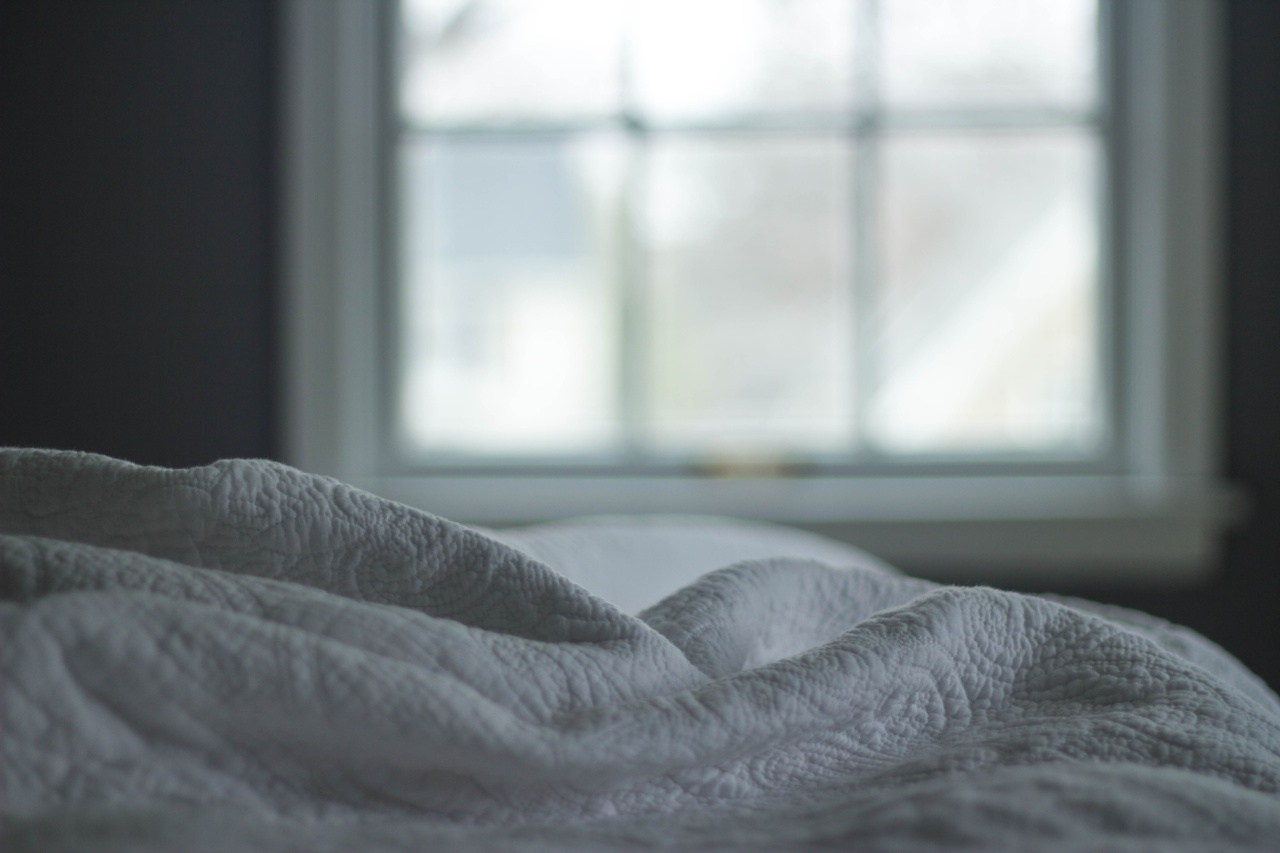Discover Which Diseases May Be Linked to Your Anxious Sleep Patterns
Sleep is an essential part of our daily routine. It allows our bodies to rest and repair, as well as recharge our minds for the next day. However, many people suffer from sleep disorders, and one of the most common is anxiety-induced sleeplessness.
While occasional sleepless nights are no cause for worry, a consistent pattern of anxiety-induced sleeplessness can lead to more severe health problems. Recent studies have shown that sleep deprivation can lead to weakened immune systems and increased risk for heart disease, obesity, and diabetes.
Anxiety-induced Sleeplessness
Anxiety-induced sleeplessness is a sleep disorder that affects millions of people worldwide. It is characterized by the inability to fall or stay asleep due to excessive worrying or stress.
This condition can have many causes, such as financial difficulties, relationship problems, work-related stress, or personal trauma. Lack of sleep can lead to exhaustion, irritability, difficulty concentrating, and depression. It can also increase the risk of accidents and injuries, as well as lower productivity levels at work.
To overcome anxiety-induced sleeplessness, it may be necessary to examine lifestyle changes, such as creating a relaxing bedtime routine, getting regular exercise, and practicing stress management techniques, like yoga or meditation.
Heart Disease and Sleeplessness
Studies have shown that there is a link between sleep disorders and the risk of developing heart disease. This is because lack of sleep can cause damage to the cardiovascular system.
Sleep deprivation can cause an increase in blood pressure and inflammation, which in turn can affect the health of the heart. Additionally, lack of sleep can lead to a buildup of chemicals in the body, such as cortisol and adrenaline, which can also harm the heart. It is important to prioritize sleep and to try to get 7-9 hours of sleep each night.
This can help to prevent heart disease and lower the risk of other health problems, such as hypertension and stroke.
Obesity and Sleep Deprivation
Sleep deprivation can also lead to obesity, as it affects the body’s regulation of hunger hormones.
Lack of sleep can cause an increase in the hormone ghrelin, which stimulates appetite, and a decrease in the hormone leptin, which signals fullness. Additionally, when people are tired, they are more likely to make poor dietary choices, such as consuming high-calorie, high-fat foods, and skipping meals.
This can lead to weight gain and further health problems. To prevent obesity, it is essential to prioritize sleep and maintain a healthy diet and exercise routine. Creating a relaxing bedtime routine, avoiding caffeine and alcohol before bedtime, and reducing exposure to electronic devices can help promote healthy sleep habits.
Diabetes and Sleeplessness
Studies have also shown that there is a link between sleep deprivation and the development of diabetes. Lack of sleep can affect the body’s ability to regulate blood sugar, which can lead to insulin resistance and an increased risk of diabetes.
Additionally, sleep deprivation can also affect cognitive function, which can make it more challenging to make healthy food choices and to maintain a regular exercise routine. To reduce the risk of diabetes, it is essential to prioritize sleep and to maintain a healthy lifestyle, including a nutritious diet and regular physical activity. Making lifestyle changes, such as creating a relaxing bedtime routine and avoiding electronic devices before bedtime, can help promote healthy sleep habits.
Conclusion
Sleep is an essential part of a healthy lifestyle. Lack of sleep can affect all areas of our lives, from work productivity to personal relationships.
Anxiety-induced sleeplessness is a common sleep disorder that can have many negative health effects, including heart disease, obesity, and diabetes. It is essential to prioritize sleep and to make lifestyle changes that promote healthy sleep habits. Creating a relaxing bedtime routine, avoiding electronic devices before bedtime, and getting regular exercise can help promote healthy sleep habits and reduce the risk of sleep deprivation-related health problems.




























